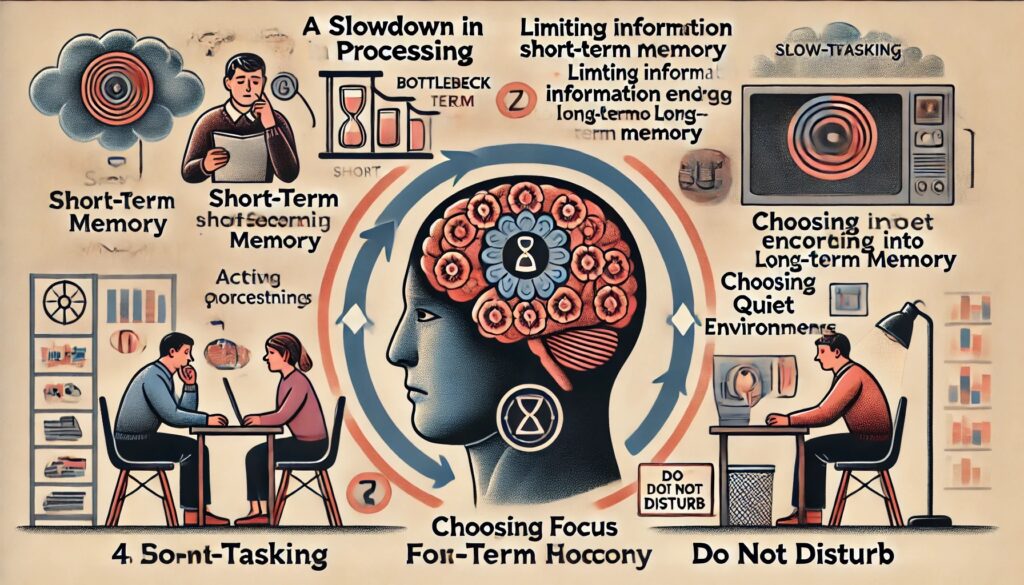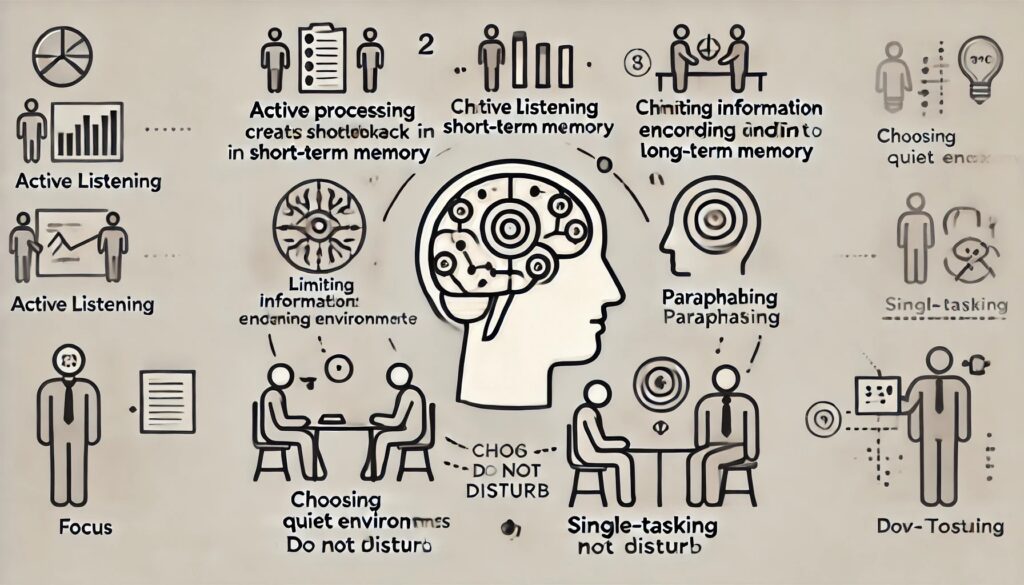
ChatGPT:
Memory loss can begin at different stages of life depending on various factors, including genetics, lifestyle, health conditions, and environmental influences. Here’s a general overview of when and how memory changes might occur:
- Normal Aging:
- 20s and 30s: Cognitive abilities, including memory, are generally at their peak. However, minor lapses, like forgetting names or misplacing items, can still occur and are usually not concerning.
- 40s and 50s: People might start noticing more frequent minor memory lapses, such as forgetting appointments or struggling to recall words. These changes are usually normal and related to the natural aging process.
- 60s and beyond: Memory lapses can become more noticeable. It may take longer to learn new things, remember names, or find the right words. However, significant memory loss is not a normal part of aging and may indicate an underlying condition.
- Mild Cognitive Impairment (MCI):
- This is an intermediate stage between normal age-related cognitive decline and more serious conditions like dementia. People with MCI may experience more significant memory problems than expected for their age but are still able to function independently. MCI can occur in individuals in their 60s and 70s.
- Dementia and Alzheimer’s Disease:
- Early Onset Dementia: In rare cases, dementia can begin before the age of 65. Early-onset Alzheimer’s disease, for instance, can start in a person’s 40s or 50s.
- Late-Onset Dementia: The most common form of dementia, including Alzheimer’s disease, typically affects individuals aged 65 and older. Memory loss associated with dementia is more severe and affects daily functioning.
- Other Factors Influencing Memory Loss:
- Health Conditions: Chronic illnesses such as hypertension, diabetes, and heart disease can affect brain health and contribute to memory loss.
- Lifestyle Factors: Poor diet, lack of exercise, smoking, excessive alcohol consumption, and chronic stress can negatively impact memory.
- Mental Health: Conditions like depression, anxiety, and chronic stress can impair memory and cognitive function.
- Medications: Certain medications, especially when used long-term, can affect memory.
- Trauma and Illness:
- Head Injuries: Traumatic brain injuries can lead to memory loss at any age.
- Infections and Diseases: Conditions like encephalitis or untreated syphilis can cause memory problems.
While memory loss can begin at various stages of life, it’s important to distinguish between normal age-related changes and more serious memory impairments. If memory loss is significant, worsening, or affecting daily life, it’s important to consult a healthcare provider for a thorough evaluation and appropriate intervention.
High blood pressure, or hypertension, is closely linked to memory loss and cognitive decline. Here are some ways in which high blood pressure affects memory and brain health:
- Reduced Blood Flow to the Brain: High blood pressure can damage blood vessels, leading to a reduction in blood flow to the brain. This can deprive brain cells of oxygen and essential nutrients, impairing their function and leading to cognitive decline.
- Brain Structure Changes: Chronic high blood pressure can cause structural changes in the brain, including the shrinkage of certain brain regions like the hippocampus, which is crucial for memory formation and retention.
- White Matter Lesions: Hypertension can cause damage to the brain’s white matter, the areas containing nerve fibers. This damage can result in lesions, which are associated with cognitive problems, including memory loss and slower information processing.
- Increased Risk of Stroke: High blood pressure is a major risk factor for strokes. Strokes occur when the blood supply to part of the brain is interrupted, causing brain cells to die. This can result in significant memory and cognitive impairments.
- Amyloid Plaques: Hypertension is associated with an increased risk of developing amyloid plaques, which are characteristic of Alzheimer’s disease. These plaques can disrupt brain cell communication and lead to memory loss and other cognitive issues.
- Inflammation and Oxidative Stress: High blood pressure can contribute to chronic inflammation and oxidative stress, both of which are harmful to brain cells and can accelerate the process of cognitive decline and memory loss.
- Vascular Dementia: Hypertension is a leading cause of vascular dementia, a type of dementia caused by impaired blood flow to the brain. Vascular dementia often results in memory loss, confusion, and difficulties with planning and judgment.
Managing blood pressure through lifestyle changes, medication, and regular monitoring is essential for maintaining brain health and reducing the risk of memory loss and cognitive decline. Regular exercise, a healthy diet, stress management, and avoiding smoking and excessive alcohol consumption are key strategies for keeping blood pressure under control.
A common issue where a slowdown in processing can create a bottleneck in short-term memory, limiting the amount of information that can be encoded into long-term memory. This issue can be mitigated by improving focus and attention. Here are four strategies suggested to enhance focus and reduce distractions:
- Active Listening: When someone is speaking to you, ensure you look at the person and listen carefully. If you miss any part of the conversation, don’t hesitate to ask for a repetition or for the speaker to slow down. This active engagement helps in better information retention.
- Paraphrasing: Restate what was said in your own words to confirm your understanding and reinforce the information. For instance, if someone provides you with movie options, you might clarify by asking which option they prefer, thus cementing the details in your memory.
- Choosing Quiet Environments: If you are easily distracted during conversations, opt for quieter settings. Meeting at someone’s home instead of a noisy restaurant can help. If you do meet in a noisy place, sitting near a wall and facing your companions can help you focus better on the conversation.
- Single-Tasking: Focus on one task at a time to enhance your concentration and screen out distractions. Avoid interruptions by letting calls go to voicemail and asking others to wait until you finish your current task before addressing their queries.
These strategies are designed to help improve attention and focus, thereby enhancing the ability to process and encode information more effectively into long-term memory.
Overcoming absentmindedness involves strategies to improve focus, organization, and memory retention. Here are several practical tips:
- Stay Organized:
- Use Planners and Calendars: Keep track of appointments, tasks, and deadlines.
- Create To-Do Lists: Write down tasks and prioritize them. Check off items as you complete them.
- Establish Routines:
- Consistent Schedules: Maintain regular routines for daily activities to create habits that are less likely to be forgotten.
- Designate Specific Places: Keep commonly misplaced items like keys, glasses, and wallets in the same place.
- Minimize Distractions:
- Quiet Environment: Work or study in a quiet place with minimal interruptions.
- Single-Tasking: Focus on one task at a time to enhance concentration and reduce the likelihood of forgetting details.
- Use Memory Aids:
- Sticky Notes: Place reminders in visible locations.
- Digital Reminders: Set alarms and notifications on your phone or computer for important tasks and events.
- Practice Mindfulness:
- Mindfulness Meditation: Regular mindfulness practice can improve attention and awareness, helping to reduce absentmindedness.
- Stay Present: Focus on the present moment and the task at hand rather than letting your mind wander.
- Engage in Mental Exercises:
- Puzzles and Games: Activities like crosswords, Sudoku, and memory games can help keep your mind sharp.
- Learning New Skills: Challenge your brain by learning new languages, musical instruments, or other skills.
- Improve Physical Health:
- Regular Exercise: Physical activity boosts blood flow to the brain and enhances cognitive function.
- Healthy Diet: A balanced diet supports overall brain health. Include brain-boosting foods like fruits, vegetables, fish, and nuts.
- Adequate Sleep: Ensure you get enough restful sleep to support memory and cognitive processes.
- Practice Active Listening:
- Engage Fully in Conversations: Look at the person speaking and listen attentively. Repeat back what you’ve heard to confirm understanding.
- Take Notes: Jot down key points during meetings or lectures to help reinforce information.
- Manage Stress:
- Relaxation Techniques: Practice deep breathing, yoga, or other relaxation methods to reduce stress, which can contribute to forgetfulness.
- Balanced Lifestyle: Ensure you have a good balance between work, rest, and leisure activities.
- Seek Professional Help if Needed:
- Medical Evaluation: If absentmindedness is severe or worsening, consult a healthcare provider to rule out underlying conditions like anxiety, depression, or medical issues affecting memory.
- Cognitive Behavioral Therapy (CBT): This can help address behaviors and thought patterns contributing to absentmindedness.
Implementing these strategies can help improve focus, enhance memory retention, and reduce the frequency of absentmindedness in daily life.
Engaging in various activities can significantly boost brainpower by enhancing cognitive function, memory, and overall mental health. Here are some activities to consider:
Mental Exercises
- Puzzles and Brain Games:
- Crosswords, Sudoku, and jigsaw puzzles help stimulate the brain and improve problem-solving skills.
- Reading:
- Reading books, articles, and research papers enhances comprehension, vocabulary, and critical thinking.
- Learning New Skills:
- Picking up new hobbies, such as playing a musical instrument, cooking new recipes, or crafting, challenges the brain to form new neural connections.
- Educational Courses:
- Enrolling in online or in-person courses on various topics keeps the brain engaged and continuously learning.
- Memory Games:
- Games designed to improve memory, such as matching pairs or recall tasks, can enhance short-term and long-term memory.
Physical Activities
- Regular Exercise:
- Aerobic exercises like walking, jogging, swimming, or cycling increase blood flow to the brain and improve cognitive function.
- Yoga and Tai Chi:
- These practices combine physical movement with mental focus and relaxation, enhancing mental clarity and reducing stress.
- Dancing:
- Dancing not only provides physical exercise but also requires coordination and memory, stimulating multiple areas of the brain.
Social Activities
- Socializing:
- Regular interaction with friends and family can improve mood and cognitive function. Engage in conversations, group activities, or social clubs.
- Board Games and Card Games:
- Playing games like chess, bridge, or Scrabble with others encourages strategic thinking and social interaction.
Creative Activities
- Art and Crafting:
- Drawing, painting, sculpting, knitting, and other creative activities stimulate the brain’s creativity and problem-solving areas.
- Writing:
- Keeping a journal, writing stories, or composing poems enhances creativity and improves written communication skills.
Mindfulness and Relaxation
- Meditation and Mindfulness:
- Practices that focus on mindfulness and meditation can improve attention, reduce stress, and enhance overall cognitive function.
- Deep Breathing Exercises:
- Techniques like deep breathing and progressive muscle relaxation can reduce stress and improve mental clarity.
Brain-Boosting Lifestyle Choices
- Healthy Diet:
- Consuming a diet rich in fruits, vegetables, whole grains, lean proteins, and healthy fats supports brain health. Foods like blueberries, fatty fish, nuts, and seeds are particularly beneficial.
- Adequate Sleep:
- Ensuring you get enough restful sleep is crucial for memory consolidation and cognitive function.
- Hydration:
- Staying hydrated is important for maintaining concentration and cognitive performance.
Technology-Based Activities
- Brain Training Apps:
- Apps like Lumosity, Peak, and Elevate offer a variety of games and exercises designed to enhance cognitive function.
- Virtual Reality (VR) Games:
- VR games that require movement and problem-solving can provide a fun way to boost brainpower.
Community Involvement
- Volunteering:
- Engaging in community service or volunteer work can provide a sense of purpose, reduce stress, and stimulate cognitive function through social interaction and problem-solving.
Incorporating a variety of these activities into your routine can help keep your brain sharp, improve cognitive function, and enhance overall mental well-being.

